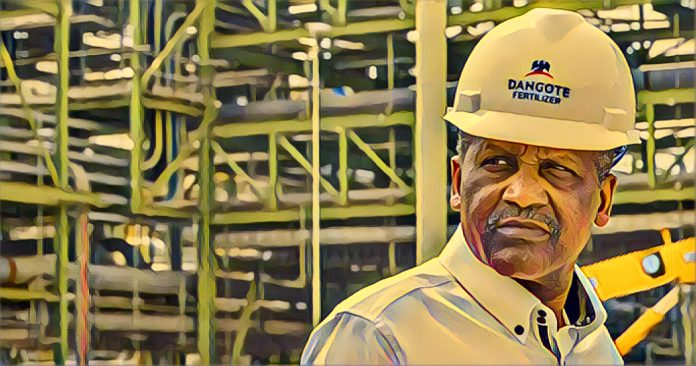KEY POINTS
- Dangote Refinery aims to meet Nigeria’s petrol needs locally.
- $2 billion is needed every three months to secure crude oil.
- Partnerships with NNPC and financiers aim to overcome funding challenges.
Business magnate Aliko Dangote is working to secure billions of dollars to ensure a steady supply of crude oil for his $20 billion oil refinery in Lagos, one of the largest refineries in the world.
Dangote Industries is in talks with banks, development financiers, and oil producers to raise the funds needed to keep the refinery running smoothly. According to the Financial Times, the refinery has the capacity to process 650,000 barrels of crude oil daily, but this depends on having a reliable supply of crude.
So far, the company has sourced crude oil from countries like the U.S. and Brazil. Talks are also ongoing with oil producers in Africa, including Libya and Angola, to meet production goals. Devakumar Edwin, a senior executive at Dangote Industries, said these efforts are essential for achieving the refinery’s ambitious targets.
Reducing Nigeria’s dependence on fuel imports
The Dangote Refinery is being hailed as a solution to Nigeria’s heavy reliance on imported fuel, which costs the country billions of dollars each year. Currently producing 420,000 barrels of oil per day, Dangote aims to reach full capacity by mid-2025, despite earlier delays.
Once fully operational, the refinery could meet Nigeria’s petrol needs, estimated at 30 million to 35 million liters daily. This would save the country a significant amount of money and create more jobs.
However, getting a steady supply of crude oil is proving to be expensive. Experts estimate that Dangote needs about $2 billion every three months to secure at least 300,000 barrels of crude daily. The recent devaluation of Nigeria’s currency, the naira, has further raised concerns about whether the refinery can turn a profit.
Government and industry backing
To tackle these challenges, Dangote has met with President Bola Tinubu and the Nigerian National Petroleum Company Limited (NNPC). The NNPC has agreed to supply 365,000 barrels of crude oil daily to the refinery, with payments made in naira to offset the effects of currency devaluation.
The NNPC currently owns a 7.2% stake in the refinery, reduced from an earlier 20% due to financial challenges. While the NNPC’s contribution is vital, the refinery still needs additional crude sources to meet its full capacity.
The Africa Finance Corporation (AFC), which has previously invested in the refinery, is now helping Dangote raise more funds to keep crude supplies steady and expand operations.
Opportunities and challenges
According to a report by the Sun, critics have raised concerns about Dangote’s growing influence in the Nigerian market, comparing it to his dominance in the cement industry. Some worry that his control over fuel production could limit competition and affect pricing.
Despite these concerns, the refinery has the potential to transform Nigeria’s economy. If successful, it could drastically reduce the need for fuel imports, save billions in foreign exchange, boost the local economy, and provide thousands of jobs.
For this vision to become a reality, Dangote must secure crude oil supplies and overcome the financial hurdles ahead. While the challenges are significant, the refinery’s success could mark a major milestone for Nigeria’s oil industry.



